HILT Conference 2017
Evaluating teaching
Wednesday, September 20, 2017
Wasserstein Hall, Harvard University
#hiltconf
Welcome remarks
 Erin Driver-Linn is Associate Provost for Institutional Research and Director of HILT. At HILT, Erin helps facilitate experimentation with innovative pedagogies and works to forge collaborative ties among teaching and learning experts within and beyond the University. She works closely with the Vice Provost for Advances in Learning and others in the Office of the President and Provost, as well as leadership across school lines, to catalyze innovation and excellence in education.
Erin Driver-Linn is Associate Provost for Institutional Research and Director of HILT. At HILT, Erin helps facilitate experimentation with innovative pedagogies and works to forge collaborative ties among teaching and learning experts within and beyond the University. She works closely with the Vice Provost for Advances in Learning and others in the Office of the President and Provost, as well as leadership across school lines, to catalyze innovation and excellence in education.
Keynote panel
 Drew Gilpin Faust (moderator) is the 28th President of Harvard University and the Lincoln Professor of History in Harvard’s Faculty of Arts and Sciences.
Drew Gilpin Faust (moderator) is the 28th President of Harvard University and the Lincoln Professor of History in Harvard’s Faculty of Arts and Sciences.
As president of Harvard, Faust has expanded financial aid to improve access to Harvard College for students of all economic backgrounds and advocated for increased federal funding for scientific research. She has broadened the University’s international reach, raised the profile of the arts on campus, embraced sustainability, launched edX, the online learning partnership with MIT, and promoted collaboration across academic disciplines and administrative units as she guided the University through a period of significant financial challenges.
She is the author of six books, including This Republic of Suffering: Death and the American Civil War (2008), for which she won the 2009 Bancroft Prize, the New-York Historical Society’s 2009 American History Book Prize, and which was recognized by The New York Times as one of the “Ten Best Books of 2008.” It is the basis for a 2012 Emmy-nominated episode of the PBS American Experience documentaries titled “Death and the Civil War,” directed by Ric Burns.
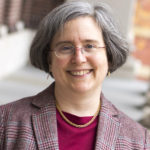 Ann Blair is Carl H. Pforzheimer University Professor at Harvard University, where she specializes in the cultural and intellectual history of early modern Europe (16th-17th centuries), with an emphasis on France. Her interests include the history of the book and of reading, the history of the disciplines and of scholarship, and the history of interactions between science and religion. She has received fellowships and awards from many sources including the National Endowment for the Humanities, the MacArthur Foundation, the Mellon Foundation, the Guggenheim Foundation, and the Radcliffe Institute for Advanced Study and is serving as Director of Undergraduate Studies in History.
Ann Blair is Carl H. Pforzheimer University Professor at Harvard University, where she specializes in the cultural and intellectual history of early modern Europe (16th-17th centuries), with an emphasis on France. Her interests include the history of the book and of reading, the history of the disciplines and of scholarship, and the history of interactions between science and religion. She has received fellowships and awards from many sources including the National Endowment for the Humanities, the MacArthur Foundation, the Mellon Foundation, the Guggenheim Foundation, and the Radcliffe Institute for Advanced Study and is serving as Director of Undergraduate Studies in History.
 Gary King is Albert J. Weatherhead III University Professor and Director of the Institute for Quantitative Social Science. He develops and applies empirical methods in many areas of social science research, focusing on innovations that span the range from statistical theory to practical application. He has been elected to 8 honorary societies and has won more than 40 awards for his work. King has a long history of developing what are now widely used teaching and learning innovations, including as cofounder of the educational technology startups, Perusall, Learning Catalytics, and others.
Gary King is Albert J. Weatherhead III University Professor and Director of the Institute for Quantitative Social Science. He develops and applies empirical methods in many areas of social science research, focusing on innovations that span the range from statistical theory to practical application. He has been elected to 8 honorary societies and has won more than 40 awards for his work. King has a long history of developing what are now widely used teaching and learning innovations, including as cofounder of the educational technology startups, Perusall, Learning Catalytics, and others.
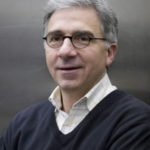 Douglas Melton is Xander University Professor at Harvard and an Investigator of the Howard Hughes Medical Institute.He is also co-director of Harvard’s Stem Cell Institute. With his wife, Gail O’Keefe, Melton also serves as Faculty Dean of Eliot House. Research in his laboratory focuses on understanding how the pancreas normally develops and manipulating stem cells to form human islet cells. One of the Institute’s long-term goals is to provide a source of insulin-producing beta-cells for diabetics.
Douglas Melton is Xander University Professor at Harvard and an Investigator of the Howard Hughes Medical Institute.He is also co-director of Harvard’s Stem Cell Institute. With his wife, Gail O’Keefe, Melton also serves as Faculty Dean of Eliot House. Research in his laboratory focuses on understanding how the pancreas normally develops and manipulating stem cells to form human islet cells. One of the Institute’s long-term goals is to provide a source of insulin-producing beta-cells for diabetics.
Breakout sessions 1 (10:40am – 11:40am)
Creating connections & increasing engagement: Improving your teaching without changing your syllabus
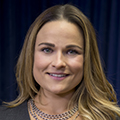 Erin Baumann (facilitator) is Assistant Director of Curriculum and Pedagogy with SLATE (Strengthening Learning and Teaching Excellence) at the Harvard Kennedy School. Her work brings together elements of faculty development and instructional design to support faculty and programs in curricular materials development, classroom management, and pedagogical research. She also leads SLATE’s experiential learning and simulation development practice and is co-chair of the HILT Affinity Group for Simulations and Games.
Erin Baumann (facilitator) is Assistant Director of Curriculum and Pedagogy with SLATE (Strengthening Learning and Teaching Excellence) at the Harvard Kennedy School. Her work brings together elements of faculty development and instructional design to support faculty and programs in curricular materials development, classroom management, and pedagogical research. She also leads SLATE’s experiential learning and simulation development practice and is co-chair of the HILT Affinity Group for Simulations and Games.
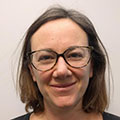 Rebecca Nesson (facilitator) is Executive Director of the Digital Teaching and Learning Harvard Division of Continuing Education. She believes online education can be every bit as effective as traditional courses, and sometimes more. She and her team work with Harvard faculty and Harvard Extension School instructors to make their courses active, engaging, and vibrant with instructor-student and peer relationships. She holds a Ph.D. in Computer Science from SEAS, a J.D. from Harvard Law School, and an A.B. in Folklore & Mythology from the College.
Rebecca Nesson (facilitator) is Executive Director of the Digital Teaching and Learning Harvard Division of Continuing Education. She believes online education can be every bit as effective as traditional courses, and sometimes more. She and her team work with Harvard faculty and Harvard Extension School instructors to make their courses active, engaging, and vibrant with instructor-student and peer relationships. She holds a Ph.D. in Computer Science from SEAS, a J.D. from Harvard Law School, and an A.B. in Folklore & Mythology from the College.
 Adrienne Phelps-Coco (facilitator) is Associate Director of Online Pedagogy at the Harvard Division of Continuing Education and an instructor at the Harvard Extension School. She consults with instructors on adapting their courses for online delivery while maintaining their preferred teaching styles and pedagogical methodologies. Through teaching workshops, she also works to promote student engagement and interaction.
Adrienne Phelps-Coco (facilitator) is Associate Director of Online Pedagogy at the Harvard Division of Continuing Education and an instructor at the Harvard Extension School. She consults with instructors on adapting their courses for online delivery while maintaining their preferred teaching styles and pedagogical methodologies. Through teaching workshops, she also works to promote student engagement and interaction.
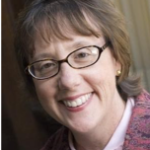 Emily Click is Assistant Dean for Ministry Studies and Field Education and Lecturer on Ministry at Harvard Divinity School. Her scholarship has focused on new ways of conceptualizing connections among adult education theory, human development theory, and education for religious leadership. She has served as chair of the steering committee of the Association for Theological Field Education (ATFE), the North American professional association for theological field educators. Emily teaches courses on leadership and administration, mentoring, and religious education.
Emily Click is Assistant Dean for Ministry Studies and Field Education and Lecturer on Ministry at Harvard Divinity School. Her scholarship has focused on new ways of conceptualizing connections among adult education theory, human development theory, and education for religious leadership. She has served as chair of the steering committee of the Association for Theological Field Education (ATFE), the North American professional association for theological field educators. Emily teaches courses on leadership and administration, mentoring, and religious education.
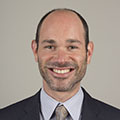 Jonathan Hausmann is Instructor in Medicine at Harvard Medical School. He is interested in the use of cognitive learning theories and technology to improve medical education. He created AskUp, a free, open-source web app that leverages these techniques for student-generated questions. He is also working to improve the quality of questions used at HMS, both in the classroom and on exams.
Jonathan Hausmann is Instructor in Medicine at Harvard Medical School. He is interested in the use of cognitive learning theories and technology to improve medical education. He created AskUp, a free, open-source web app that leverages these techniques for student-generated questions. He is also working to improve the quality of questions used at HMS, both in the classroom and on exams.
How to fail successfully
 Sarah Grafman (facilitator) is Manager of Instructional Development for HarvardX. She works with professors from across Harvard University to produce digital learning experiences for global learners. Prior to joining HarvardX, Sarah was a multimedia producer for WGBH/PBS and an educational producer for Muzzy Lane, a “serious games” company.
Sarah Grafman (facilitator) is Manager of Instructional Development for HarvardX. She works with professors from across Harvard University to produce digital learning experiences for global learners. Prior to joining HarvardX, Sarah was a multimedia producer for WGBH/PBS and an educational producer for Muzzy Lane, a “serious games” company.
 Sejal Vashi (facilitator) is Manager of Digital Learning at the Harvard T.H. Chan School of Public Health where she draws upon a background in public health, mathematics education, and expertise in the design and production of online courses to enable digital learning experiences. Previously she worked at the Infectious Diseases Institute in Kampala, Uganda, where she was an e-Learning Specialist and Global Health Corps Fellow, designing and delivering training on HIV and TB, among other topics.
Sejal Vashi (facilitator) is Manager of Digital Learning at the Harvard T.H. Chan School of Public Health where she draws upon a background in public health, mathematics education, and expertise in the design and production of online courses to enable digital learning experiences. Previously she worked at the Infectious Diseases Institute in Kampala, Uganda, where she was an e-Learning Specialist and Global Health Corps Fellow, designing and delivering training on HIV and TB, among other topics.
 Peter Bol is Vice Provost for Advances in Learning (VPAL) and the Charles H. Carswell Professor of East Asian Languages and Civilizations. As an historian of China he works on the sociocultural history of the literati. As Vice Provost he is responsible for guiding support and services for faculty to advance learning and teaching environments (on-campus and online). Through his office, Bol has budgetary oversight of HarvardX, the Harvard Initiative for Learning and Teaching (HILT), and research collaborations of VPAL research to advance the science of learning.
Peter Bol is Vice Provost for Advances in Learning (VPAL) and the Charles H. Carswell Professor of East Asian Languages and Civilizations. As an historian of China he works on the sociocultural history of the literati. As Vice Provost he is responsible for guiding support and services for faculty to advance learning and teaching environments (on-campus and online). Through his office, Bol has budgetary oversight of HarvardX, the Harvard Initiative for Learning and Teaching (HILT), and research collaborations of VPAL research to advance the science of learning.
 Randall King is Harry C. McKenzie Professor of Cell Biology. His laboratory studies how ubiquitin-dependent protein degradation controls cell cycle progression in normal and cancer cells. He is interested in the regulation of the Anaphase-Promoting Complex, how chromosome segregation is perturbed in cancer cells, and employs long-term time lapse imaging to understand how normal cells and cancer cells cope with defects in chromosome segregation.
Randall King is Harry C. McKenzie Professor of Cell Biology. His laboratory studies how ubiquitin-dependent protein degradation controls cell cycle progression in normal and cancer cells. He is interested in the regulation of the Anaphase-Promoting Complex, how chromosome segregation is perturbed in cancer cells, and employs long-term time lapse imaging to understand how normal cells and cancer cells cope with defects in chromosome segregation.
Looking beyond Harvard: The teaching evaluations landscape
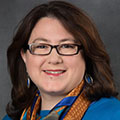 Kris Markman (facilitator) is Director of Digital Learning and User Experience, Harvard Library. She leads the Digital Learning & User Experience (DLUX) department at Harvard Library, which includes the User Research Center. DLUX’s mission is to develop and support proficiency in innovative digital pedagogy and evidence-based decision-making across Harvard Library. Kris leads and manages collaborate efforts towards creating new online learning objects for use across Harvard Library, and oversees the development of the digital learning portal.
Kris Markman (facilitator) is Director of Digital Learning and User Experience, Harvard Library. She leads the Digital Learning & User Experience (DLUX) department at Harvard Library, which includes the User Research Center. DLUX’s mission is to develop and support proficiency in innovative digital pedagogy and evidence-based decision-making across Harvard Library. Kris leads and manages collaborate efforts towards creating new online learning objects for use across Harvard Library, and oversees the development of the digital learning portal.
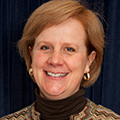 Allison Pingree (facilitator) is Director of Professional Pedagogy at the Harvard Kennedy School. She offers individualized instructional consultation to HKS faculty (including class observations, syllabus design, strategies for managing classroom dynamics, and mid-course student feedback), facilitates the HKS Teaching Seminar series and Case Teaching Workshop, organizes the New Faculty Institute and HKS Teaching Week, and disseminates and supports research-based best practices for professional pedagogy in the HKS teaching community. Her passion as an educator lies in cultivating ways to integrate cognitive, affective, and embodied forms of learning to promote individual and social change.
Allison Pingree (facilitator) is Director of Professional Pedagogy at the Harvard Kennedy School. She offers individualized instructional consultation to HKS faculty (including class observations, syllabus design, strategies for managing classroom dynamics, and mid-course student feedback), facilitates the HKS Teaching Seminar series and Case Teaching Workshop, organizes the New Faculty Institute and HKS Teaching Week, and disseminates and supports research-based best practices for professional pedagogy in the HKS teaching community. Her passion as an educator lies in cultivating ways to integrate cognitive, affective, and embodied forms of learning to promote individual and social change.
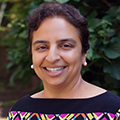 Anu Vedantham (facilitator) is Director of Learning and Teaching Services for FAS Libraries and Interim Director of Science and Engineering Services, Harvard Library. She joined the Harvard Library in 2016, after nine years as Director of the Weigle Information Commons at the Penn Libraries. Her research on global warming at the Environmental Defense Fund has been recognized by the Intergovernmental Panel on Climate Change (IPCC) as a significant contribution to the 2007 Nobel Peace Prize.
Anu Vedantham (facilitator) is Director of Learning and Teaching Services for FAS Libraries and Interim Director of Science and Engineering Services, Harvard Library. She joined the Harvard Library in 2016, after nine years as Director of the Weigle Information Commons at the Penn Libraries. Her research on global warming at the Environmental Defense Fund has been recognized by the Intergovernmental Panel on Climate Change (IPCC) as a significant contribution to the 2007 Nobel Peace Prize.
Which decision-making practices promote excellent teaching?
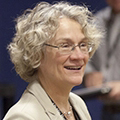 Nancy Kane (facilitator) is Professor of Management in the Department of Health Policy and Management in the Harvard T.H. Chan School of Public Health, and Co-Chair of the Task Force on Educational Quality. She has won numerous teaching awards and supports case writing and advocates for teaching via the case method. She directs the Master in Health Care Management Program, an executive leadership program created for mid-career physicians leading healthcare organizations, and teaches in Executive and Master’s Degree programs in the areas of health care financial accounting and analysis, payment systems, and competitive strategy.
Nancy Kane (facilitator) is Professor of Management in the Department of Health Policy and Management in the Harvard T.H. Chan School of Public Health, and Co-Chair of the Task Force on Educational Quality. She has won numerous teaching awards and supports case writing and advocates for teaching via the case method. She directs the Master in Health Care Management Program, an executive leadership program created for mid-career physicians leading healthcare organizations, and teaches in Executive and Master’s Degree programs in the areas of health care financial accounting and analysis, payment systems, and competitive strategy.
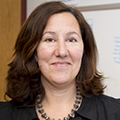 Carolyn Wood (facilitator) is Director of the Office of Educational Quality Improvement (OEQI) at Harvard Medical School. The OEQI oversees the intersecting areas of student assessment, course and clerkship evaluation, program evaluation, faculty development, and the HMS Academy of medical educators. The OEQI leverages evidence gleaned from student, course/clerkship, and program evaluation to inform curricular and pedagogical enhancements that foster a culture of excellence in teaching and learning.
Carolyn Wood (facilitator) is Director of the Office of Educational Quality Improvement (OEQI) at Harvard Medical School. The OEQI oversees the intersecting areas of student assessment, course and clerkship evaluation, program evaluation, faculty development, and the HMS Academy of medical educators. The OEQI leverages evidence gleaned from student, course/clerkship, and program evaluation to inform curricular and pedagogical enhancements that foster a culture of excellence in teaching and learning.
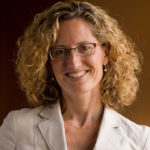 Monica Higgins is Kathleen McCartney Professor of Education Leadership at the Harvard Graduate School of Education where her research and teaching focus on the areas of leadership development and organizational change. Prior to joining HGSE in 2007, she spent eleven years as a member of the faculty at Harvard Business School in the Organizational Behavior Unit. At Harvard, Professor Higgins teaches courses on leadership and organizational change, entrepreneurship, teams, and on teaching and learning by the case method. She has also taught in leadership programs for The Broad Foundation and for New Leaders for New Schools. Additionally, she teaches in and is co-chair of the Harvard Advanced Leadership Initiative.
Monica Higgins is Kathleen McCartney Professor of Education Leadership at the Harvard Graduate School of Education where her research and teaching focus on the areas of leadership development and organizational change. Prior to joining HGSE in 2007, she spent eleven years as a member of the faculty at Harvard Business School in the Organizational Behavior Unit. At Harvard, Professor Higgins teaches courses on leadership and organizational change, entrepreneurship, teams, and on teaching and learning by the case method. She has also taught in leadership programs for The Broad Foundation and for New Leaders for New Schools. Additionally, she teaches in and is co-chair of the Harvard Advanced Leadership Initiative.
Breakout sessions 2 (11:50am – 12:50pm)
Emerging approaches to evaluating teaching
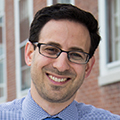 Josh Bookin (facilitator) is Assistant Director of Instructional Support and Development for the Teaching and Learning Lab at the Harvard Graduate School of Education. His main focus is developing and promoting teaching excellence at HGSE by engaging with faculty members and teaching fellows to assist them in solving problems of practice to best meet the learning needs of their students. He previously served in a similar capacity as the Assistant Director of Curriculum and Pedagogy at the Harvard Kennedy School.
Josh Bookin (facilitator) is Assistant Director of Instructional Support and Development for the Teaching and Learning Lab at the Harvard Graduate School of Education. His main focus is developing and promoting teaching excellence at HGSE by engaging with faculty members and teaching fellows to assist them in solving problems of practice to best meet the learning needs of their students. He previously served in a similar capacity as the Assistant Director of Curriculum and Pedagogy at the Harvard Kennedy School.
 Evan Sanders (facilitator) has spent the entirety of his career supporting the M.D. program at Harvard Medical School. In his current role as Associate Director of Curriculum Services, Teaching and Learning Technologies, Evan oversees the implementation of educational technology across the required curriculum for medical and dental students. Evan’s domains include learning management and student information systems, computer-based testing, video and multimedia, e-learning and cloud collaboration. Evan and his colleagues are involved in curricular and strategic planning, teaching and learning space design and grant-funded educational projects.
Evan Sanders (facilitator) has spent the entirety of his career supporting the M.D. program at Harvard Medical School. In his current role as Associate Director of Curriculum Services, Teaching and Learning Technologies, Evan oversees the implementation of educational technology across the required curriculum for medical and dental students. Evan’s domains include learning management and student information systems, computer-based testing, video and multimedia, e-learning and cloud collaboration. Evan and his colleagues are involved in curricular and strategic planning, teaching and learning space design and grant-funded educational projects.
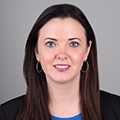 Margaret “Molly” Hayes, MD is an Instructor in Medicine at Harvard Medical School (HMS), a medical intensivist at Beth Israel Deaconess Medical Center (BIDMC), Associate Program Director for the Internal Medicine Residency at BIDMC, Director of the Intensive Care Medicine Clerkship at BIDMC/HMS, and Assistant Director of Medical Simulation for the Department of Medicine at BIDMC. Current research projects are aimed at utilizing simulation to teach communication skills to residents, mentoring a fellow working to evaluate the use of simulation as an assessment tool for medical students, and toward characterizing how critical thinking is taught and learned across Harvard.
Margaret “Molly” Hayes, MD is an Instructor in Medicine at Harvard Medical School (HMS), a medical intensivist at Beth Israel Deaconess Medical Center (BIDMC), Associate Program Director for the Internal Medicine Residency at BIDMC, Director of the Intensive Care Medicine Clerkship at BIDMC/HMS, and Assistant Director of Medical Simulation for the Department of Medicine at BIDMC. Current research projects are aimed at utilizing simulation to teach communication skills to residents, mentoring a fellow working to evaluate the use of simulation as an assessment tool for medical students, and toward characterizing how critical thinking is taught and learned across Harvard.
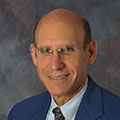 Richard Schwartzstein is Ellen and Melvin Gordon Professor of Medicine and Medical Education, and Director of The Academy at Harvard Medical School and the Shapiro Institute for Education and Research at HMS and Beth Israel Deaconess Medical Center. Dr. Schwartzstein played a key role in the design of the Pathways curriculum at HMS and has written an award-winning textbook on respiratory physiology. In addition to his clinical work at BIDMC, he serves as VP for Education.
Richard Schwartzstein is Ellen and Melvin Gordon Professor of Medicine and Medical Education, and Director of The Academy at Harvard Medical School and the Shapiro Institute for Education and Research at HMS and Beth Israel Deaconess Medical Center. Dr. Schwartzstein played a key role in the design of the Pathways curriculum at HMS and has written an award-winning textbook on respiratory physiology. In addition to his clinical work at BIDMC, he serves as VP for Education.
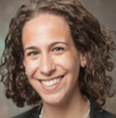 Morgan Soffler is a Clinical and Research fellow in the Harvard Medical School Combined Pulmonary and Critical Care Fellowship at Massachusetts General Hospital and Beth Israel Deaconess Medical Center. She has research interest in feedback and assessment and is currently studying the use of simulation as tool for medical student assessment. She instructs medical residents in procedural training and assists in running simulation curricula for medical students and internal medicine residents.
Morgan Soffler is a Clinical and Research fellow in the Harvard Medical School Combined Pulmonary and Critical Care Fellowship at Massachusetts General Hospital and Beth Israel Deaconess Medical Center. She has research interest in feedback and assessment and is currently studying the use of simulation as tool for medical student assessment. She instructs medical residents in procedural training and assists in running simulation curricula for medical students and internal medicine residents.
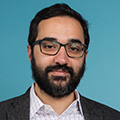 Theodore Svoronos is Lecturer in Public Policy at Harvard Kennedy School of Government where he teaches courses in statistics and econometrics for both MPP and MPA/ID students, and develops new digital and online teaching materials for the MPP program. In addition, Teddy has produced and taught several online modules for the Building Capacity to use Research Evidence (BCURE) project which have been used in India and Pakistan with the aim of enabling policymakers to effectively use evidence in decision making.
Theodore Svoronos is Lecturer in Public Policy at Harvard Kennedy School of Government where he teaches courses in statistics and econometrics for both MPP and MPA/ID students, and develops new digital and online teaching materials for the MPP program. In addition, Teddy has produced and taught several online modules for the Building Capacity to use Research Evidence (BCURE) project which have been used in India and Pakistan with the aim of enabling policymakers to effectively use evidence in decision making.
Getting the most out of faculty & staff partnerships
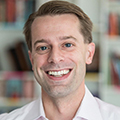 Adam Beaver (facilitator) is Associate Director for Teaching and Learning at The Derek Bok Center for Teaching and Learning. He works primarily with faculty and graduate students in the humanities, social sciences, and Gen Ed. Trained as a Renaissance historian, Adam is especially attuned to what we can learn from the deep history of universities, including the different kinds of intellectual practices and communities which have inhabited them, and is interested in thinking with teachers about the best way to blend different kinds of techniques and exercises into a style that works for each individual instructor and course.
Adam Beaver (facilitator) is Associate Director for Teaching and Learning at The Derek Bok Center for Teaching and Learning. He works primarily with faculty and graduate students in the humanities, social sciences, and Gen Ed. Trained as a Renaissance historian, Adam is especially attuned to what we can learn from the deep history of universities, including the different kinds of intellectual practices and communities which have inhabited them, and is interested in thinking with teachers about the best way to blend different kinds of techniques and exercises into a style that works for each individual instructor and course.
 Lisa Brem (facilitator) is Managing Director, Teaching, Learning & Curriculum Solutions at Harvard Law School. She worked for ten years as a research associate at Harvard Business School, creating case studies and teaching notes with Professors V.G. Narayanan, Noam Wasserman, and F. Asis Martinez-Jerez. Since 2011, she has been working to promote the use of innovative technologies and case study method at Harvard Law School. She has collaborated with many faculty and programs to integrate technology for engagement and to create case studies that meet the specific pedagogical needs of the legal classroom.
Lisa Brem (facilitator) is Managing Director, Teaching, Learning & Curriculum Solutions at Harvard Law School. She worked for ten years as a research associate at Harvard Business School, creating case studies and teaching notes with Professors V.G. Narayanan, Noam Wasserman, and F. Asis Martinez-Jerez. Since 2011, she has been working to promote the use of innovative technologies and case study method at Harvard Law School. She has collaborated with many faculty and programs to integrate technology for engagement and to create case studies that meet the specific pedagogical needs of the legal classroom.
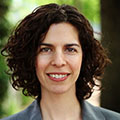 Esme Caramello is faculty director of the Harvard Legal Aid Bureau and a Clinical Professor of Law at Harvard Law School, where she teaches professional responsibility. At the Legal Aid Bureau, a student-run legal aid organization founded in 1913, Esme and her students represent low-income clients in housing cases and in appellate and policy projects that promote fair housing and equal access to justice. Esme also works with the Law School’s clinical programs on programming and practices aimed at teaching ethical (student) lawyering.
Esme Caramello is faculty director of the Harvard Legal Aid Bureau and a Clinical Professor of Law at Harvard Law School, where she teaches professional responsibility. At the Legal Aid Bureau, a student-run legal aid organization founded in 1913, Esme and her students represent low-income clients in housing cases and in appellate and policy projects that promote fair housing and equal access to justice. Esme also works with the Law School’s clinical programs on programming and practices aimed at teaching ethical (student) lawyering.
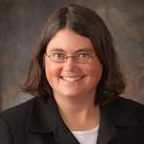 Sheryl Dickey joined Harvard Law School in 2013 as an Attorney Advisor with the Office of Clinical and Pro Bono Programs. Prior to joining Harvard, Sheryl directed a non-profit volunteer program, litigated commercial litigation matters with White & Case LLP, and taught students and litigated cases with the Environmental and Natural Resources Law Clinic at Vermont Law School. Sheryl is interested in how to effectively use both technology and more traditional means to engage our students, serve our clinic clients, and assist our faculty and clinical instructors as they strive for excellence in their clinical teaching.
Sheryl Dickey joined Harvard Law School in 2013 as an Attorney Advisor with the Office of Clinical and Pro Bono Programs. Prior to joining Harvard, Sheryl directed a non-profit volunteer program, litigated commercial litigation matters with White & Case LLP, and taught students and litigated cases with the Environmental and Natural Resources Law Clinic at Vermont Law School. Sheryl is interested in how to effectively use both technology and more traditional means to engage our students, serve our clinic clients, and assist our faculty and clinical instructors as they strive for excellence in their clinical teaching.
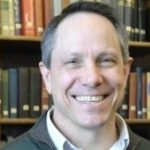 Daniel Lord Smail is Frank B. Baird, Jr. professor and Chair of the Department of History at Harvard University, where he works on the history and anthropology of Mediterranean societies between 1100 and 1600 and on deep human history. In medieval European history, his work has explored the social and cultural history of the cities of Mediterranean Europe, with a focus on Marseille in the later Middle Ages. His current research approaches transformations in the material culture of the later Middle Ages using household inventories and inventories of debt recovery from Lucca and Marseille.
Daniel Lord Smail is Frank B. Baird, Jr. professor and Chair of the Department of History at Harvard University, where he works on the history and anthropology of Mediterranean societies between 1100 and 1600 and on deep human history. In medieval European history, his work has explored the social and cultural history of the cities of Mediterranean Europe, with a focus on Marseille in the later Middle Ages. His current research approaches transformations in the material culture of the later Middle Ages using household inventories and inventories of debt recovery from Lucca and Marseille.
Making the most of student evaluations
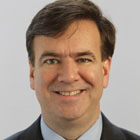 William (Willis) M. Emmons (facilitator) has been Senior Lecturer of Business Administration and Director of the C. Roland Christensen Center for Teaching and Learning at Harvard Business School since 2005. He oversees programs to promote and support teaching excellence and innovation within Harvard Business School and to provide leadership and expertise about case method teaching and participant-centered learning for instructors at other institutions in the United States and abroad. Emmons was previously a member of the Harvard Business School faculty from 1989-1999 where, as part of the Business, Government, and the International Economy (BGIE) unit, he taught courses in the M.B.A. and executive education programs.
William (Willis) M. Emmons (facilitator) has been Senior Lecturer of Business Administration and Director of the C. Roland Christensen Center for Teaching and Learning at Harvard Business School since 2005. He oversees programs to promote and support teaching excellence and innovation within Harvard Business School and to provide leadership and expertise about case method teaching and participant-centered learning for instructors at other institutions in the United States and abroad. Emmons was previously a member of the Harvard Business School faculty from 1989-1999 where, as part of the Business, Government, and the International Economy (BGIE) unit, he taught courses in the M.B.A. and executive education programs.
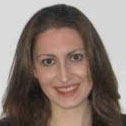 Alexandra Sedlovskaya (facilitator) is Assistant Director of the C. Roland Christensen Center for Teaching and Learning at the Harvard Business School. She designs and executes research pertaining to management education and pedagogies that support participant-centered learning. Project areas include case teaching, curricular innovations, program assessment, gender and diversity, student evaluations of teaching, and teaching effectiveness.
Alexandra Sedlovskaya (facilitator) is Assistant Director of the C. Roland Christensen Center for Teaching and Learning at the Harvard Business School. She designs and executes research pertaining to management education and pedagogies that support participant-centered learning. Project areas include case teaching, curricular innovations, program assessment, gender and diversity, student evaluations of teaching, and teaching effectiveness.
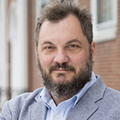 William Wisser (facilitator) is Director of the Teaching and Learning Lab (TLL) at the Harvard Graduate School of Education where he oversees a team of professionals dedicated to supporting faculty and HGSE programs in the design, development, and delivery of innovative and effective learning experiences. He is also a lecturer in education and regularly teaches the T127 Practicum course that provides students with real-world opportunities to implement and evaluate learning designs. His research interests include alternative credentials, reusable digital learning objects, and electronic portfolios.
William Wisser (facilitator) is Director of the Teaching and Learning Lab (TLL) at the Harvard Graduate School of Education where he oversees a team of professionals dedicated to supporting faculty and HGSE programs in the design, development, and delivery of innovative and effective learning experiences. He is also a lecturer in education and regularly teaches the T127 Practicum course that provides students with real-world opportunities to implement and evaluate learning designs. His research interests include alternative credentials, reusable digital learning objects, and electronic portfolios.
Stories of effective and ineffective evaluations of teaching
 Johanna Gutlerner (facilitator) is Associate Dean for Planning and Administration in Basic Science, Graduate Education and Global Programs and a Lecturer in Biological Chemistry and Molecular Pharmacology at Harvard Medical School. In this role, she works with members of the Dean’s office, as well as PhD and Master’s programs’ faculty leadership and staff to support academic, administrative, and strategic planning efforts. Johanna is the former Co-Director of the HMS Curriculum Fellows Program, a postdoctoral program that brings PhD scientists to HMS to work with faculty members to help manage graduate education courses and paracurricular programming, and to catalyze educational innovation through scholarship of teaching and learning. Johanna has taught Harvard medical students, graduate students, and undergraduates.
Johanna Gutlerner (facilitator) is Associate Dean for Planning and Administration in Basic Science, Graduate Education and Global Programs and a Lecturer in Biological Chemistry and Molecular Pharmacology at Harvard Medical School. In this role, she works with members of the Dean’s office, as well as PhD and Master’s programs’ faculty leadership and staff to support academic, administrative, and strategic planning efforts. Johanna is the former Co-Director of the HMS Curriculum Fellows Program, a postdoctoral program that brings PhD scientists to HMS to work with faculty members to help manage graduate education courses and paracurricular programming, and to catalyze educational innovation through scholarship of teaching and learning. Johanna has taught Harvard medical students, graduate students, and undergraduates.
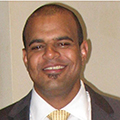 Jason Heustis (facilitator) is Lecturer in the Department of Biological Chemistry and Molecular Pharmacology (BCMP) and a Graduate Curriculum, Professional Development and Evaluation Specialist for the Program in Graduate Education at Harvard Medical School (HMS). At HMS, Jason teaches graduate students and assesses learning in the areas of biochemistry and molecular biology, experimental design, teaching, and the responsible conduct of science. He also develops paracurricular training opportunities to support the divergent career pathways of doctoral students in the biomedical sciences.
Jason Heustis (facilitator) is Lecturer in the Department of Biological Chemistry and Molecular Pharmacology (BCMP) and a Graduate Curriculum, Professional Development and Evaluation Specialist for the Program in Graduate Education at Harvard Medical School (HMS). At HMS, Jason teaches graduate students and assesses learning in the areas of biochemistry and molecular biology, experimental design, teaching, and the responsible conduct of science. He also develops paracurricular training opportunities to support the divergent career pathways of doctoral students in the biomedical sciences.
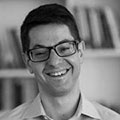 Martin Samuels (facilitator) is Associate Director for Science and Learning at the Bok Center, and is eager to collaborate with faculty and graduate students to design and teach courses that allow students to realize the explanatory and innovative power of their disciplines in an empowering way. Prior to joining the Bok Center, earned his PhD in Biochemistry at Harvard and served as Assistant Director for Undergraduate Studies for the Molecular and Cell Biology (MCB) and Chemical and Physical Biology (CPB) concentrations. He was co-instructor in Life and Physical Sciences A (LPS A), MCB 60, and MCB 65.
Martin Samuels (facilitator) is Associate Director for Science and Learning at the Bok Center, and is eager to collaborate with faculty and graduate students to design and teach courses that allow students to realize the explanatory and innovative power of their disciplines in an empowering way. Prior to joining the Bok Center, earned his PhD in Biochemistry at Harvard and served as Assistant Director for Undergraduate Studies for the Molecular and Cell Biology (MCB) and Chemical and Physical Biology (CPB) concentrations. He was co-instructor in Life and Physical Sciences A (LPS A), MCB 60, and MCB 65.
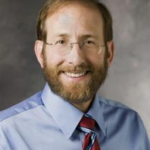 Alan M. Garber is Provost of Harvard University, where he holds professorships in the Medical School, Faculty of Arts and Sciences, Kennedy School of Government, and School of Public Health. Alan’s academic work explores health policy and the economics of health care. As Provost, Alan has taken a special interest in pedagogy and teaching, leading Harvard in its partnership with MIT to create edX. He received his AB summa cum laude and PhD in Economics from Harvard University, as well as his MD with research honors from Stanford University.
Alan M. Garber is Provost of Harvard University, where he holds professorships in the Medical School, Faculty of Arts and Sciences, Kennedy School of Government, and School of Public Health. Alan’s academic work explores health policy and the economics of health care. As Provost, Alan has taken a special interest in pedagogy and teaching, leading Harvard in its partnership with MIT to create edX. He received his AB summa cum laude and PhD in Economics from Harvard University, as well as his MD with research honors from Stanford University.

